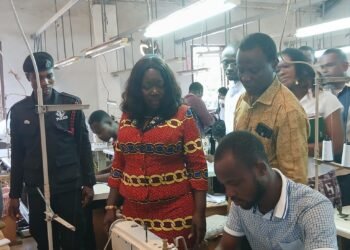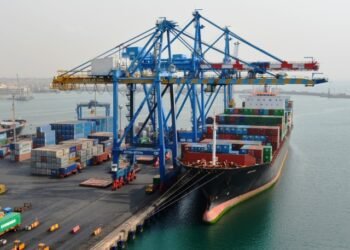The Country Director for CUTS International, Appiah Adumako, has revealed that SMEs in the country may struggle to trade on AfCFTA.
According to him, challenges such as limited skill set will pose a problem in ensuring businesses take advantage of the trade.
Based on the twelve pillars of the Global Competitiveness Index, a report by CUTS International, it revealed that Ghana will find it difficult to compete with South Africa, Egypt, Morocco, and Kenya under AfCFTA.
Commenting on this, Mr Adumako explained that other conditions like high cost of borrowing makes it difficult for the country to trade.
“The research was conducted before trading started under the AfCFTA and we spoke to lots of businesses from the SMEs and also the multinationals. We [found] that the SMEs in Ghana are not well positioned to be able to trade and compete with the likes of companies that are from countries in South Africa, Kenya, Cote d’Ivoire, Morocco and Senegal. Largely because of some framework conditions that we have in this country. Especially with regards to the high cost of borrowing and lack of some certain skills for manufacturing sector to be able to produce.
“We spoke to one pharmaceutical firm and they said that when their machine breaks down, they have to import experts from other countries to come and fix them. Though we live in Ghana, we say that jobs are not here. But I tell you that there are lots of jobs that cannot be filled today because, we [the] people don’t have the skillset for those jobs. These are some of the findings that we found”.
Appiah Adumako
Recommendation from CUTS International
As part of its recommendation, Mr Adumako suggested that the national implementation strategy needs to be worked out.
With this, he noted that government has taken notice of it “and we have the national office for implementing the AfCFTA”.
“We have seen some of the work. But I think that most of the efforts should be geared towards supporting the SMEs. Because SMEs constitutes about 80% of the economy and a study said that only 13% of SMEs are aware of AfCFTA.
“So, focus should be on SMEs because SMEs are likely Ghanaian owned and whenever they make profits, the profits stay in the country unlike the multinational. Of course, we shouldn’t leave the multinationals out but I think that we also need to [have] homegrown strategy. Let’s serve the Ghanaian private sector to take full advantage in terms of the support…”
Appiah Adumako
Scope of CUTS International’s report
The study selected firms to assess their readiness for the implementation of the AfCFTA. It was conducted from October 2019 to March 2020 and was based on a sample of 120 firms.
These firms were randomly selected from three highly dominated private sector regions. Similarly, five private sectors were selected for the study, including the pharmaceutical and herbal industry.
Also, the tourism and hospitality industry, food and beverages industry, agri-business industry and garment and the leather and textiles industries were selected.
The selection of these sectors was based on the government’s list of priority products and their contribution to economic growth and development.
The tourism and hospitality industry were not among the government’s priority products. However, its selection was based on its greater contribution to economic growth and development.
Read Also: 4 and 7 percent salary increment proposal an insult- Mohammed Adams























